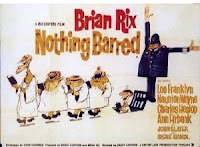Today the Supreme Court overturned a decision by Court of Appeal and ruled that an injunction banning the naming of a celebrity involved in an alleged extra-marital relationship should stay in place.
Over to John Hemming, the former Liberal Democrat MP:
Delivering the court's judgment, Lord Mance did at least say:
Over on Liberal Democrat Voice, Caron Lindsay has argued that there is "nothing of public interest in lurid headlines about SNP MPs".
I find this creeping doctrine that everything printed in a newspaper must be "in the public interest" rather sinister.
Who decides what is in the public interest? Somewhere in the shadows I detect the presence of a committee of the great and good - a retired cabinet minister, the headmistress of a leading public school, a celebrity chef and Dr Evan Harris - deciding what we should and should not be allowed to know.
At its lowest, the argument against the spread of this public interest argument is that laughing at the follies of rich and powerful has always been one of the consolations of the poor and weak.
At its highest it is that character matters immensely in politics. To many voters it is more important than the parties' detailed policy platforms, and I am not sure those voters are mistaken.
The spread of privacy law in recent years has been very much a judge-led initiative with little involvement from parliament. As John Hemmings says, it is time the politicians stepped in and set sensible limits on it.
Over to John Hemming, the former Liberal Democrat MP:
The logical conclusion of this is that gossip about anyone with children will become a criminal offence subject to a potential penalty of 2 years' imprisonment.
It is important to note that the injunction covers people talking in pubs, gossiping over the garden fence, or twittering on the internet. All of these could potentially see an application for committal for contempt of court. That comes with large amounts of legal costs and up to 2 years imprisonment. One would assume that it would not be assumed that this would only apply to claimants who have a large amount of money, but also everyone else.And all this despite the fact that anyone who wants to find the identity of the celebrity, or of the married actor who slept with a prostitute and has taken out a similar injunction against the British press, can easily do so.
Delivering the court's judgment, Lord Mance did at least say:
“It is different if the story has some bearing on the performance of a public office or the correction of a misleading public impression cultivated by the person involved."But there are those who question even that.
Over on Liberal Democrat Voice, Caron Lindsay has argued that there is "nothing of public interest in lurid headlines about SNP MPs".
I find this creeping doctrine that everything printed in a newspaper must be "in the public interest" rather sinister.
Who decides what is in the public interest? Somewhere in the shadows I detect the presence of a committee of the great and good - a retired cabinet minister, the headmistress of a leading public school, a celebrity chef and Dr Evan Harris - deciding what we should and should not be allowed to know.
At its lowest, the argument against the spread of this public interest argument is that laughing at the follies of rich and powerful has always been one of the consolations of the poor and weak.
At its highest it is that character matters immensely in politics. To many voters it is more important than the parties' detailed policy platforms, and I am not sure those voters are mistaken.
The spread of privacy law in recent years has been very much a judge-led initiative with little involvement from parliament. As John Hemmings says, it is time the politicians stepped in and set sensible limits on it.


















